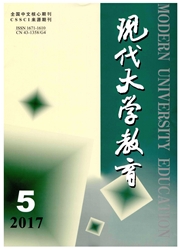

 中文摘要:
中文摘要:
中国高等教育入学机会问题的核心是农民子女重点大学入学机会不均等。建国以来,农民子女重点大学入学机会在不同时期招生政策影响下出现较大变化。研究表明,农民子女入学机会均等化程度,在建国初期"向工农开门"招生政策下,显著提高;在文革时期"政治挂帅"推荐招生政策下,持续攀升;在改革开放初期"分数挂帅"招生政策下,开始恶化;在90年代中期以来高校收费与扩招政策下,渐趋回升。为改善农民子女入学机会不利处境,国家应以公平正义为价值诉求,采用弱势补偿原则,变革相关社会与教育政策。
 英文摘要:
英文摘要:
Equal access to key universities for peasant children is an important issue need to be addressed in contemporary China. Since the founding of People's Republic of China,accessibility of key universities to peasant children has undergone great changes. In the early years of new China,working-class and peasant children gained improved access to universities and colleges. Later,they were given even greater access to higher education in the Cultural Revolution period due to their "progressive"political identities. However,during the early years of reform and opening up,working-class and peasant children gradually began to lose their access to higher education under extremely exam-oriented education policy. Luckily,this situation has taken a turn for the better since the middle of the1990s,when far more young people than ever before entered university on a self-paying basis. Therefore,it is necessary for the government to promote justice and equity in the country,reform social and educational policies,so as to compensate for social inequalities and remedy the disadvantageous situation of those peasant children.
 同期刊论文项目
同期刊论文项目
 同项目期刊论文
同项目期刊论文
 期刊信息
期刊信息
